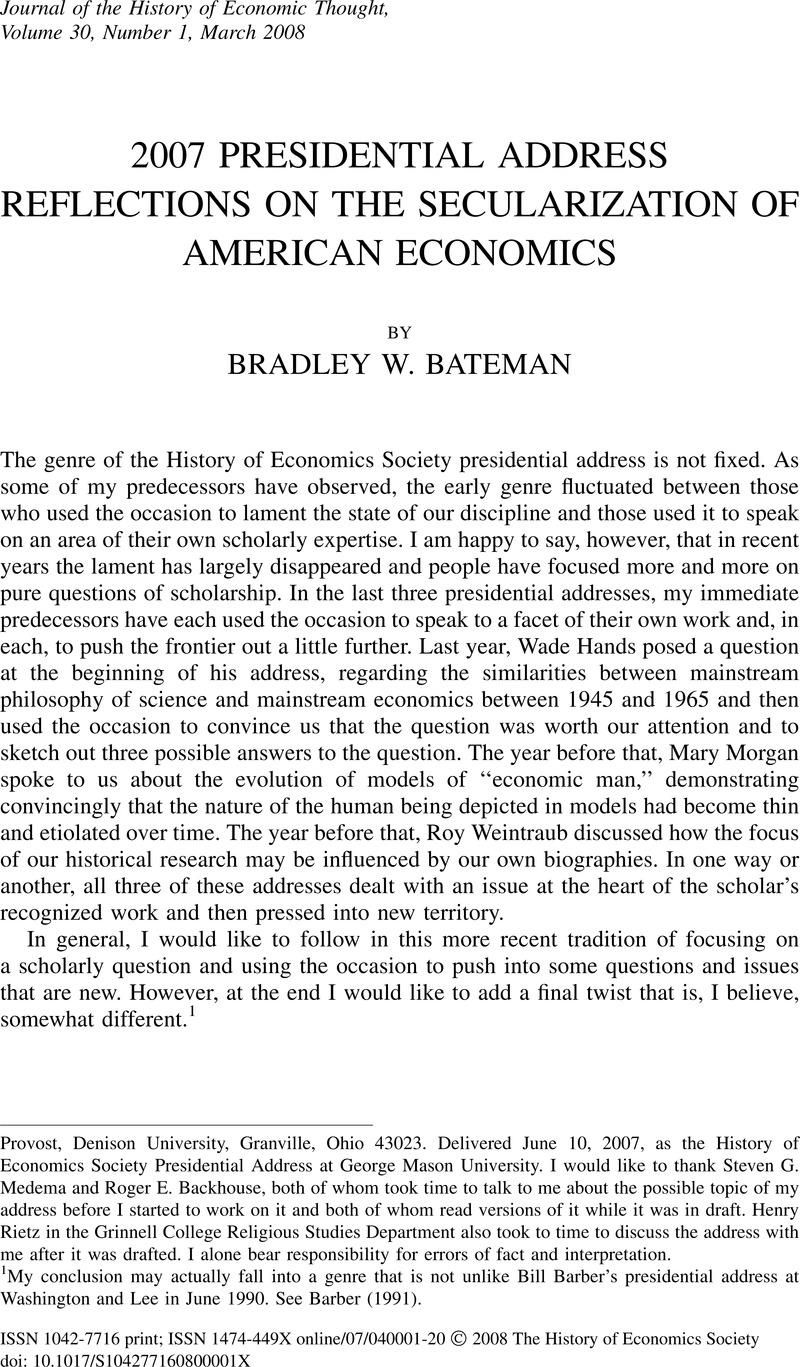Crossref Citations
This article has been cited by the following publications. This list is generated based on data provided by Crossref.
Bateman, Bradley
and
Banzhaf, H. Spencer
2008.
Keeping Faith, Losing Faith: An Introduction.
History of Political Economy,
Vol. 40,
Issue. 5,
p.
1.
BRADLEY, MICHAEL E.
2010.
ADAM SMITH’S SYSTEM OF NATURAL LIBERTY: COMPETITION, CONTESTABILITY, AND MARKET PROCESS.
Journal of the History of Economic Thought,
Vol. 32,
Issue. 2,
p.
237.
HAMMOND, J. DANIEL
2011.
STRANGE BEDFELLOWS: FR. JOHN A. RYAN AND THE MINIMUM WAGE MOVEMENT.
Journal of the History of Economic Thought,
Vol. 33,
Issue. 4,
p.
449.
Bateman, Bradley W.
2011.
“In a Space of Questions”: A Reflection on Religion and Economics at the Beginning of the Twenty-First Century.
History of Political Economy,
Vol. 43,
Issue. 2,
p.
389.
Emmett, Ross B.
2011.
Economics and Theology After the Separation.
SSRN Electronic Journal,
Lienesch, Michael
2012.
Abandoning Evolution: The Forgotten History of Antievolution Activism and the Transformation of American Social Science.
Isis,
Vol. 103,
Issue. 4,
p.
687.
Bateman, Bradley W.
2012.
Research in the History of Economic Thought and Methodology: A Research Annual.
Vol. 30,
Issue. ,
p.
153.
Edwards, José
Giraud, Yann
and
Ledezma, Ivan
2024.
THE HISTORY OF ECONOMICS SOCIETY BULLETIN AND JOURNAL OF THE HISTORY OF ECONOMIC THOUGHT (1979–2023).
Journal of the History of Economic Thought,
Vol. 46,
Issue. 4,
p.
636.



